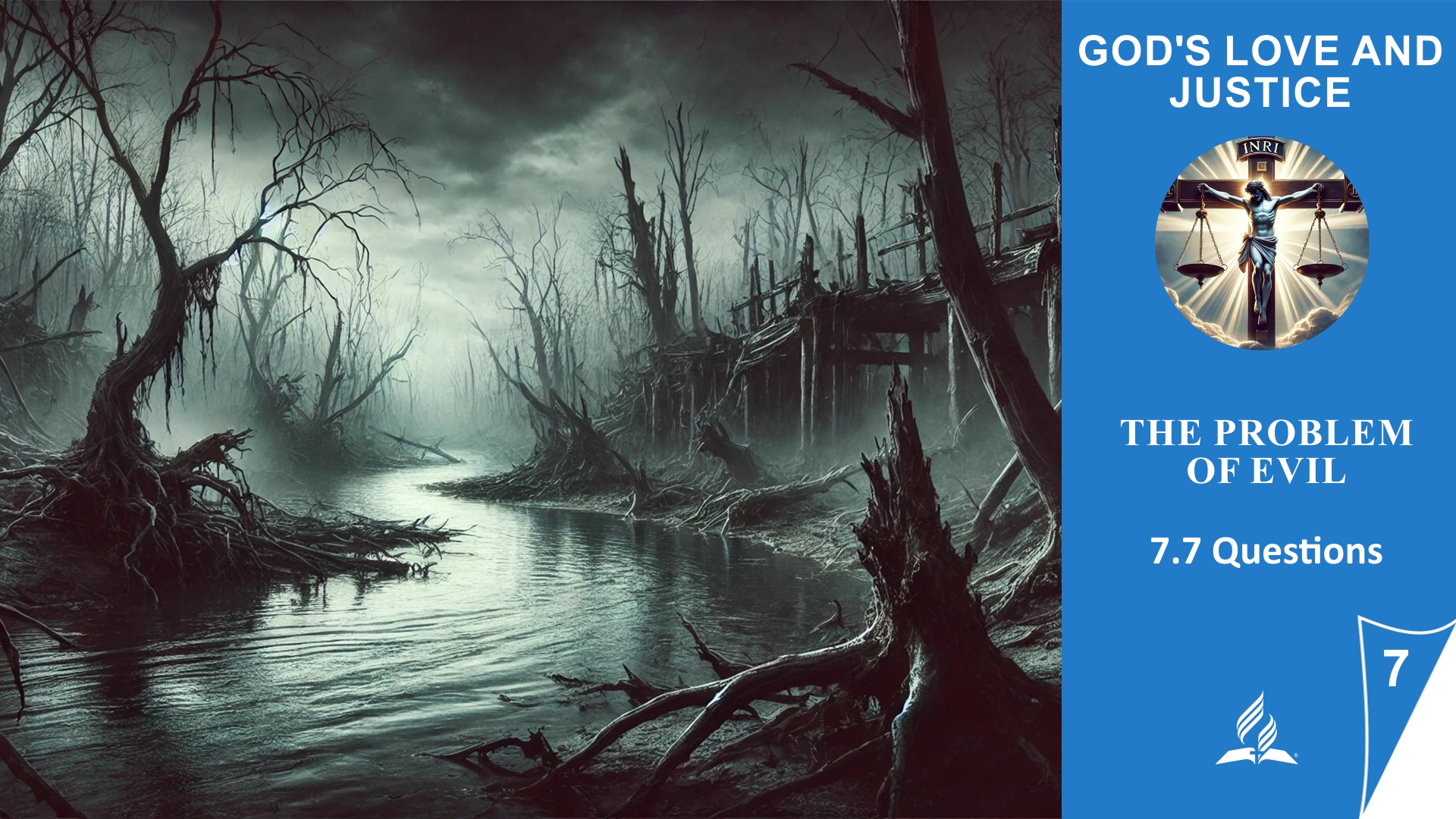



1.“Theodicy” is a term for the justification of God in the face of evil. But it is not a justification for evil itself. Imagine someone in heaven saying, “Oh yes, Jesus, now I understand why my family was tortured and murdered before my eyes. Yes, now everything makes sense. Thank you, Jesus!” That is absurd. How can we comprehend that in the grand struggle, it is God—not evil—who ultimately prevails? (See the ninth study reflection)
Theodicy deals with the question of how a good and almighty God can allow evil. Yet it is not a justification for evil itself—but an explanation of why God remains just.
-
God’s Justice and the Limits of Our Understanding
We cannot expect that all evil will “make sense” or be justified—suffering remains real and painful.
• God does not explain evil—He defeats it.
• Romans 8:18 reminds us that the glory which God will reveal is incomparable to all the suffering in this world.
📖 Revelation 21:4:
“And God will wipe away every tear from their eyes; there shall be no more death, nor sorrow, nor crying, neither shall there be any more pain, for the former things are passed away.”
💡 God’s goal is not to explain evil but to put an end to it forever.
-
Why God, Not Evil, Prevails
The Great Battle demonstrates God’s justice and love.
• Satan accuses God: He claims that God’s law is unfair and that true freedom exists only without God.
• Jesus refutes this lie: Through His death on the cross, He proves that God is not only just but also full of love.
📖 Philippians 2:10–11:
“That at the name of Jesus every knee should bow, in heaven and on earth and under the earth, and every tongue confess that Jesus Christ is Lord.”
💡 One day, the universe will recognize that God has always been just—not because He caused evil, but because He defeated it through love.
-
Our Trust in God’s Plan
We will never say, “Now everything makes sense, thank you for the suffering!”
• But we will say, “Thank you, Jesus, for defeating evil. Thank you for remaining faithful.”
• We trust that God will turn everything to good—not because evil was good, but because God is greater than evil.
💡 In the end, evil will not triumph—but God’s love and justice will prevail.
2.Have you ever felt something similar to Job? Have you ever been tempted to think that there can be no good explanation for the suffering that you or your loved ones have endured? To what extent does Job’s final realization—that he spoke of things he did not understand (Job 42:3)—shed light on our own situation regarding our questions?
Suffering is often incomprehensible. Who among us has not felt like Job at some point? When we or our loved ones go through great suffering, it sometimes seems impossible to find a good explanation.
-
Job’s Experience – A Mirror for Our Own Suffering
📖 Job 42:3:
“Who is this that obscures my plans without knowledge? Truly I spoke what I did not understand, things too marvelous for me, which I did not know.”
👉 Job acknowledges that he spoke about things he did not understand.
He sought answers—but instead received a deeper insight about God.
• He learned that God’s plan is greater than our present understanding.
💡 Similarly, we often face questions to which we have no direct answers.
-
Why Does Our Suffering Sometimes Seem Meaningless?
Because we see only a part of the picture.
• Because evil is real and has genuine consequences.
• Because, in His wisdom, God allows things that we cannot immediately understand.
📖 Isaiah 55:8–9:
“For my thoughts are not your thoughts, neither are your ways my ways,” declares the LORD.
💡 This does not mean that our suffering is insignificant—it means that God has a greater plan that we have yet to see.
-
What Can We Learn from Job’s Story for Our Lives?
✅ We may bring our questions and our suffering honestly before God.
✅ We do not need to understand everything in order to trust God.
✅ God will ultimately make everything clear—just as He showed Job.
📖 Romans 8:18:
“For I am convinced that the sufferings of this present time are not worth comparing with the glory that is to be revealed to us.”
💡 We do not have to have all the answers—we only need to trust in the One who does.
(Visited 21 times, 1 visits today)




















